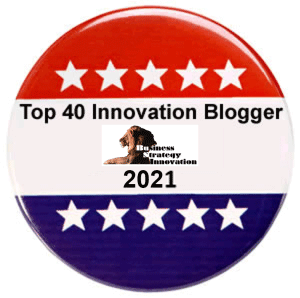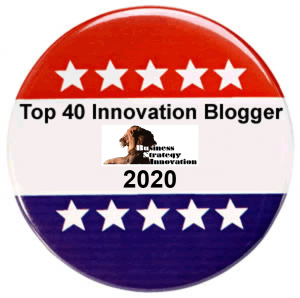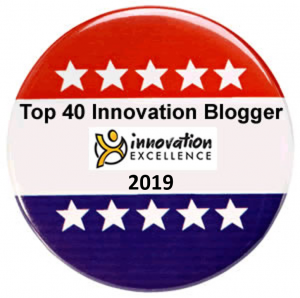I have just returned from a short sabbatical in Bali, Indonesia, a place of unparalleled beauty, lushness, and deep spirituality. It invites and fosters retreat, reflection, replenishment, and a vital space for renewal. As you may know, a sabbatical is an extended period away from work for study, travel, or personal growth. In my case, it was in response to an invitation to attend a deep dialogue session that included high-level leaders from many countries and sectors of society in the Asia Pacific region. This entailed a deep listening and inquiring process involving quietening the mind and accessing the heart within a unique environment. It unleashed people’s emotional energy and sparked collective intelligence to emerge hopefulness, unity, faith, and possibility.
It allowed people to emerge, diverge, and converge their positive and creative change choices to transform their worlds.
What is deep dialogue?
Dialogue can be defined as “a sustained collective inquiry into the processes, assumptions, and certainties that structure everyday experience”. The word “dialogue” originates from two Greek roots, ‘dia’ and ‘logos’ suggesting “meaning flowing through.”
It’s important to understand that dialogue is not the same as the often unproductive and mechanistic debates we are familiar with. Deep dialogue is a sustained collective inquiry that sparks collective intelligence through a facilitated process that delves into the values, needs, beliefs, thoughts, feelings, assumptions and certainties that shape our everyday experiences.
Deep dialogue is not just a creative conversation; it involves strategic, collective and insightful inquiry, detached observation, attention and intention, and multi-faceted listening processes.
It requires a willingness to suspend and let go of reactive and defensive exchanges and delve into their systemic causes and impacts to spark collective intelligence that creates moments of clarity in resolving complex and critical problems differently.
In contrast with more familiar modes of inquiry, deep dialogue involves an emergence process. It begins without an agenda and a ‘leader’ but with an accomplished facilitator and without a specific task or decision to make.
One key element in fostering productive dialogue is the role of the facilitator. The facilitator’s task is to co-create a collective holding space that encourages participants to disrupt and safely challenge their habitual thinking processes. This approach is based on the understanding that our problems cannot be solved using the same thinking that created them.
Deep dialogue evokes collective intelligence, opening new possibilities for shared thinking and fostering a sense of authenticity, unity and shared purpose in any endeavour.
What are the barriers that often hinder deep and meaningful dialogue?
The constant, relentless impact of accelerating change, disruption, and uncertainty, as well as the ongoing impact of our post-COVID isolation and people’s lack of belonging, never allows or permits us the key moments that enable us to engage in and reap the benefits that deep dialogue offers.
This lack of belonging and isolation are significant barriers to meaningful dialogue that evokes the positive changes we seek in our personal and professional lives.
As a seasoned corporate trainer, facilitator, coach, and consultant, I have observed that many people unconsciously still suffer from emotional overwhelm, causing them to lose their ‘spark’ or emotional energy. They also unconsciously suffer from cognitive overload, with little mental or thinking space to explore the impact of their thoughts and feelings on who they are, which diminishes any positivity, hope, and optimism for themselves, their teams, and organisations today and in the future.
Alternately, it is much easier and more comfortable for some people to be unconsciously reactive, defensive, and singularly focused, never developing their pause power.
By avoiding taking any personal responsibility or being accountable for interrupting their busyness and shifting their inner being, and developing the deliberate calm required to be, think, and act differently in the face of any instability, insecurity, sorrow, or unwellness, they may be experiencing in their hearts and minds.
Upon arrival, I discovered I was also unconsciously doing this despite my regular wellness routine and habits.
During the three-day process, I was encouraged to pay attention and notice how energetically, emotionally, and physically exhausted I felt and how my mind had been kidnapped and overloaded by my unconscious fears and anxiety over the state of the world.
Like many others, I had also unconsciously been wilfully pushing myself as a human doing rather than as a human being.
This left no space or safe moments for sparking moments of clarity, never mind socialising or connecting with others to spark collective intelligence and consciously effect positive change.
Why is deep dialogue critical in today’s uncertain and disrupted world?
Fortunately, I was supported to enter and engage in deep dialogue, which allowed our group of global leaders to safely interrupt our busyness, stop, and emerge a range of vital and subtle moments.
To cultivate and nurture our inner awareness by retreating and reflecting through mindfulness, contemplation, meditation, and silence.
It awakened us to become conscious of the subtle world that connects our unique cognitive and emotional inner structures of thoughts and feelings to the outer world we mostly unconsciously created and experienced.
It was a powerful, transformative experience for every one of us.
Because when we change, the world changes.
Choosing to cross the bridge consciously
We can engage in deep dialogue when we are empowered, enabled and equipped to stop, pause, retreat, and reflect.
By being curious, compassionate, and courageous in opening our hearts, minds, and will, we can spark regeneration, replenishment, and renewal of the range of options, choices, and intentions.
We can cross the bridge, individually and collectively, to re-create or co-create a compelling, sustainable, inclusive, and equitable future for everyone.
Anyone can be proactive and evoke creative sparks collectively and collaboratively to unleash our options, choices, and intentions by being in the present and bridging the past with a desirable future.
It is foundational to creating, inventing, and innovating our futures and reclaiming our inner dignity and power over our lives.
To spark our collective intelligence, all leaders must commit to consciously using this moment to create what is possible rather than reacting and passively accepting what might appear inevitable to some of us.
Please find out more about our work at ImagineNation™.
Please find out about our collective learning products and tools, including The Coach for Innovators, Leaders, and Teams Certified Program, presented by Janet Sernack, it is a collaborative, intimate, and profoundly personalised innovation coaching and learning program supported by a global group of peers over 9-weeks, and can be customised as a bespoke corporate learning program.
It is a blended and transformational change and learning program that will give you a deep understanding of the language, principles, and applications of an ecosystem focus, human-centric approach, and emergent structure (Theory U) to innovation, and upskill people and teams and develop their future fitness, within your unique innovation context. Please find out more about our products and tools.











